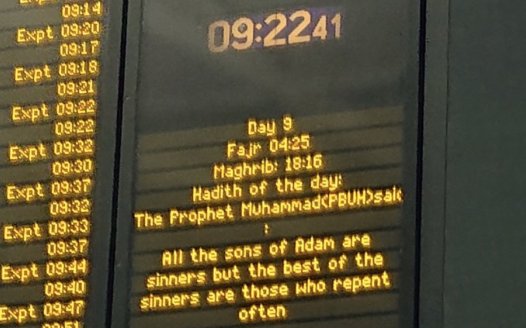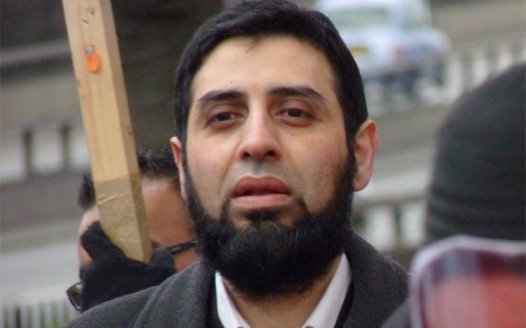Watchdog backs council which put child’s needs before parents’ religion
Posted: Fri, 5th Jul 2019
A local government watchdog has dismissed a Muslim parent's complaint that a council failed to regard his son's "religious heritage" when it placed him in care with a non-Muslim family.
The adoptive father of a child in the care of Leeds City Council complained to the local government and social care ombudsman that the council did not show regard to his son's "culture and religious heritage".
The ombudsman did not find fault in Leeds City Council's actions regarding the child, referred to as 'C', noting that the child "does not identify as a Muslim". It said the council "must find a balance between the wishes of C and his parents".
C is a looked after child who was placed in the care of the council following a care order issued by a court and whose own views diverge from his parents' Islamic beliefs.
The father, referred to as 'Mr B', approached the ombudsman after making several complaints to the council about the care of C. He claimed the council had "not allowed" his son to attend a mosque or religious events.
C's care plan, which set out objectives and contact with his parents during his time in foster care, said the council should "encourage and facilitate" C's involvement in religious activities, whilst "taking his views into account".
The care plan also said the council would prioritise C's "cultural and religious requirements" when identifying the right match for a foster placement. However, it said "this could not take priority over ensuring the match meets his complex needs".
In November 2018, the council placed C with a long-term foster placement. C's parents raised concerns that the foster placement was not from the same religious or cultural background as C. The council said it "made every effort" to find a religious and cultural match, but it had not been possible. It said it felt the current placement met C's needs.
The ombudsman accepted it is "not always possible" to find a "culturally matching foster placement" and said "it is not for me to criticise the council's choice of foster placement if it is satisfied the placement is stable and meets C needs".
Mr B complained the council had refused to let C be absent from school for two weeks to observe the Islamic festival of Muharram. He also complained that his request for added contact sessions with C for "religious observance" had been turned down.
The council said it felt best to keep to the arranged contact times because C had expressed that he did not "identify as Muslim". It also said it would not normally endorse such a long period of absence from school.
In September 2018 Mr B raised further concerns that the council was "not allowing" C to attend other religious events. C's adoptive mother said C turned up at their home unannounced and asked for additional contact to attend an event. The council said C had told them he "did not wish to attend mosque at that time" and "it could not force him to attend".
The council said it made sure everyone involved with C "is aware of his cultural and religious background". However, it said there is a "clear tension" as C "clearly expresses his views which diverge from his parent's strongly held views". It said it will "undertake life story work with C when he is ready".
The ombudsman said that the council must "find a balance" between the views of C's parents and "the wishes of C". It said: "If C does not currently identify as a Muslim and does not wish to attend religious events, I cannot criticise the council for not ensuring he does."
The ombudsman said the council had been "in regular contact with Mr B" and that it had "always given reasons and explained why it has taken a course of action he is concerned about". It said they could see "no evidence the Council has not been sensitive to Mr B's views or culture".
In its final decision, the ombudsman said it had "not found fault with the council" in the way it had complied with recommendations made during the complaints process.
National Secular Society campaigns officer Megan Manson said: "This is a welcome outcome.
"The ombudsman has acknowledged that Leeds City Council rightly prioritised the wishes and best interests of a vulnerable child, while accommodating the religious views of the parents wherever reasonable to do so.
"Too often, authorities prioritise the religious desires of parents over the needs and beliefs of their children. We see this in schools, where children do not have the right to withdraw themselves from collective worship and parents can restrict their access to crucial aspects of sex education. And we also see this in healthcare, where parents can legally have their son's genitals cut without consent and without medical need.
"The attitudes of the council and the ombudsman demonstrate a better balance between respecting the parents' beliefs and the child's best interests. This should be a welcome lesson for wider society."
The local government and social care ombudsman is an independent watchdog for local government. Complainants to local councils can refer their complaint to the ombudsman if they are not satisfied with how the council has responded to their complaint.
What the NSS stands for
The Secular Charter outlines 10 principles that guide us as we campaign for a secular democracy which safeguards all citizens' rights to freedom of and from religion.








